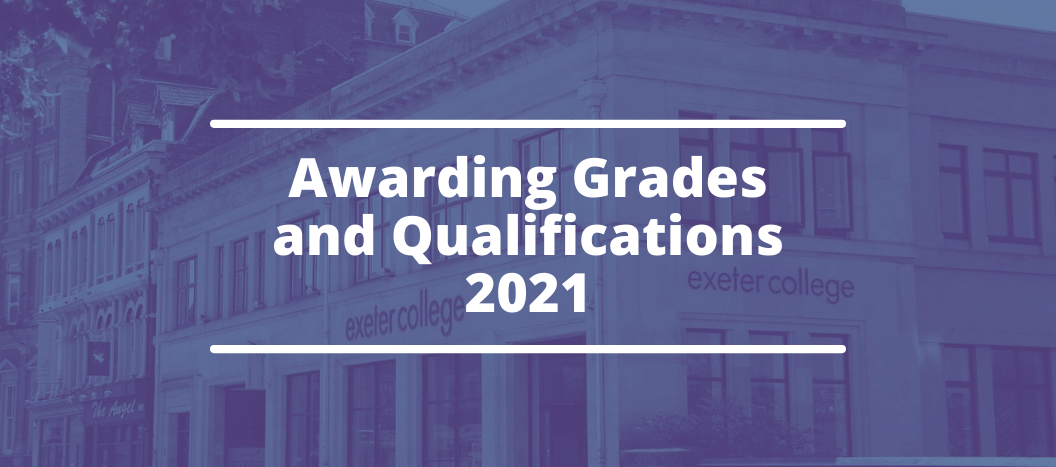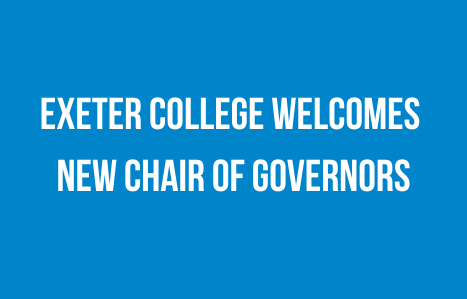
Awarding Grades and Qualifications in 2021
The Government have announced that the awarding of grades and qualifications in 2021 will not take place in the usual way. Please find below a summary of the information we currently have on the likely process for learners receiving their results. This page will be updated as we get more information.
The best possible action our learners can take is to keep engaging with their studies and do their best in all their set work to put them in the best possible position at the end of the academic year.
BTECs
- Learners are expected to engage with their full curriculum to the end of their academic year.
- The current guidance is to continue with assessment, so it is very important that learners continue to engage in all online lessons and work with teachers and personal tutors to meet coursework deadlines. It is important that learners understand that what they are doing at the moment does count.
- Exams and task-based assessments due to take place in the spring and summer will not go ahead. As soon as we know what the alternative arrangements are for these assessments, we will let learners know.
- For those learners who were due to take exams in January, BTEC’s commitment to you remains ‘to ensure learners are not disadvantaged by the decision to run/not run exams this January’. BTEC are working closely with Ofqual and the Department for Education on this and as soon as we know what their alternative approach is, we will let learners know.
A Level and GCSEs
Further to the publication of the Ofqual guidance for the determination of AS, A level and GCSE grades on Thursday February 25th, we can confirm that:
- Learner grades will be determined on teacher assessments of their students’ performance throughout the programme and based on the curriculum which has been delivered to them.
- Teaching and learning for A Level and GCSE learners will continue to support learners’ completion of their qualification, ensuring learners are supported to achieve their programme of study and they are appropriately prepared for their next steps.
- Individual subject grades may be drawn from a broad range of evidence, including non-examined assessment (for example, coursework, performances, project investigations). It is therefore important all learners continue to engage with and complete any non-examined assessments.
- We will continue to provide opportunities to our learners during the remainder of the academic year for them to be supportively assessed and to demonstrate their capabilities in their curriculum. Awarding organisations will also provide centres with additional support materials and questions to further support teachers in assessing learner performance.
- Current learners should follow the link here for further detail about A Level assessments, including a comprehensive breakdown of all assessment criteria by subject.
- A Level results will be issued on August 10th, followed by GCSE results on August 12th.
International Baccalaureate
- The IB has taken the decision not to hold examinations in the UK, following the recent consultation process with Ofqual and a review of the broader, potential disruption in UK schools and colleges due to the ongoing pandemic.
- Correspondence from the IB to UK Schools dated February 15th indicates that students’ results will be awarded using coursework marks and predicted grades. The IB have outlined, however, that the model for awarding grades and making learner predications is subject to further discussions with Ofqual, at this time.
- Year 2 learners are strongly advised to prioritise the completion of their Internal Assessments and any other Non-Examined Assessment which forms part of their overall Diploma Award as this is likely to be significantly weighted within a learner’s qualification this academic year (for example, subject coursework; oral assessments in Modern Foreign Languages; the Extended and Theory of Knowledge essays; CAS portfolios).
- All teaching and learning for the International Baccalaureate is currently delivered online and students are expected to fully engage with their scheduled lessons in both years 1 and 2 of the qualification.
UAL
- Learners are expected to engage with their full curriculum to the end of their academic year.
- The current guidance is to continue with assessment, so it is important that learners continue to engage in all online lessons and work with teachers and personal tutors to meet coursework deadlines. It is important that learners understand that what they are doing at the moment does count.
- UAL Awarding Body intends to issue further guidance on final major project units. As soon as we have this information, we will let learners know.
- UAL’s commitment to you is that they ‘will work closely with centres to ensure that no groups of students are disadvantaged or treated unfairly in this situation.’
Apprenticeships
- Apprentices are expected to engage with their full curriculum including Functional Skills, until they have successfully completed their programme.
- The current guidance is to continue with assessment, so it is important that learners continue to engage in all online lessons and work with lecturers and skills officers to produce the evidence required for qualification. What learners are doing at the moment does count.
- From February half-term (week beginning 15th February) we will be starting some exams including, End Point Assessments (EPA’s) and Functional Skills. These exams will be delivered safely and in-line with Public Health information and guidance. Lecturers or skills officers will be in contact with learners should it be deemed they are ready, or course schedules require learners to take them.
City and Guilds
- The current guidance is to continue with internal assessment, so it is important that learners continue to engage in all online lessons and work with lecturers and personal tutors to meet coursework deadlines. It is important that learners understand that what they are doing at the moment does count.
- Most dated exams, these are exams that take place on the same day or in the same exam window across the country, will not take place in March and April (Spring series). We await further information on dated exams scheduled from May onwards.
- We will be starting on demand exams, these are exams that can be scheduled and taken on any date, from February half-term (week beginning 15th February). These exams will be delivered safely and in-line with Public Health information and guidance. Teachers, personal tutors or skills officers will be in contact with learners should they feel they are well prepared to take the exam.
University level studies
- We are working closely with our Awarding Partners who are reviewing and updating their regulations to support students in the successful completion of their studies. Relevant course details will be communicated through individual Programme Teams as we receive them.
- It is important that learners fully engage with lessons and assessments.
- All assessments need to be completed, if learners are having any difficulties completing work, they should contact their tutor or the HE Office for further advice and guidance.
Access to HE
- We are working closely with the awarding body AIM Qualifications and will update courses on any relevant news.
- It is important that learners fully engage with lessons and assessments.
- All assessments need to be completed, if learners are having any difficulties completing work, they should contact their tutor or the HE Office for further advice and guidance.
ESOL
- Learners are expected to engage with their full curriculum until the end of the term, working towards their Speaking and Listening qualification.
- The current guidance is that assessments for ESOL should continue when they are able to be taken face to face. What learners are doing at the moment does count.
- Ascentis, our awarding body for ESOL, are reviewing possible adaptions for the Speaking and Listening assessments.
- When we are able to commence face to face exams, these will be delivered safely and in-line with Public Health information and guidance.
Functional Skills
- Learners/Apprentices are expected to engage with their full curriculum including Functional Skills, to the end of the academic year.
- The current guidance is that assessments for Functional Skills can continue with protective measures put in place, so it is important that learners engage in all online lessons and work with lecturers to ensure they are ready for when they do take the exam. What learners are doing at the moment does count.
- We are looking to start Functional Skills exams from February half-term (week beginning 15th February). These exams will be delivered safely and in-line with Public Health information and guidance. Lecturers, personal tutors or skills officers will be in contact with learners should they feel learners are well prepared to take the exam.
T levels
- Learners are expected to engage with their full curriculum to the end of the academic year. Industry placements however are currently paused. We hope to be able to start industry placements again when it is safe to do so.
- It is being proposed that the core exam should not go ahead this year but, there may still be the opportunity for learners to take the employer-set project.
- It is therefore important that, until we have confirmation of any adaptions, that learners engage in all online lessons and work with teachers and personal tutors to ensure they are ready for when exams might take place. What learners are doing at the moment does count.
- As soon as we have further information about any adaptions or changes to T Level assessments, we will let learners know.
IMI, NOCN, EAL, NCFE, CACHE and Other Awarding Organisations
- Learners are expected to engage with their full curriculum to the end of the academic year.
- While we await the outcome of the recent Ofqual consultation, it is important that learners engage in all online lessons and work with lecturers and tutors to meet any coursework deadlines and, to ensure you are ready to take any future assessments. What learners are doing at the moment does count.
- As soon as we have further information about any adaptions or changes to assessments, we will let learners know.
Post-Assessment Special Considerations
As national exams are cancelled for most qualifications this year, there is not a post-exam special consideration process as there would be in most years. However, if you are completing assessments that you know will be important evidence for your centre assessed grade and are in extremely difficult personal circumstances you might be eligible for special consideration as part of our Centre Assessed Grade process. The circumstances must be temporary and immediately impacting at the time of the assessment (for example being very unwell at the time of the assessment or suffering a bereavement at the time of the assessment). Long term issues are not covered by the policy. For more information click here, and talk to your personal tutor if you think you might be eligible.



